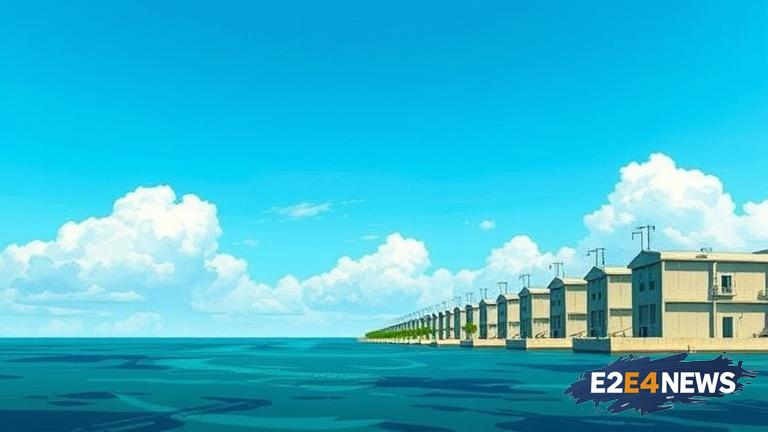A recent proposal to build an island detention center in Florida has ignited a heated debate about the future of immigration policy in the United States. The plan, which has been likened to the infamous Alcatraz prison, has sparked concerns among human rights advocates and immigration experts. The proposed center, which would be located on a remote island, would be designed to house thousands of migrants and asylum seekers. Proponents of the plan argue that it would provide a safe and secure facility for detainees, while also helping to alleviate overcrowding at existing detention centers. However, critics argue that the plan is inhumane and would only serve to further marginalize and stigmatize vulnerable populations. The proposal has also raised questions about the potential environmental impact of the center, as well as the logistics of providing adequate food, water, and medical care to detainees. As the debate over the proposed island detention center continues to unfold, it is clear that the issue is complex and multifaceted. On one hand, the United States has a long history of using island detention centers to house migrants and asylum seekers, dating back to the early 20th century. On the other hand, the use of such facilities has been widely criticized for being inhumane and ineffective. The proposed center in Florida has also sparked concerns about the potential for human rights abuses, as well as the impact on local communities. Many have expressed concerns about the lack of transparency and accountability in the proposal, as well as the potential for the center to be used as a tool for political leverage. Despite these concerns, the proposal has gained significant traction in recent months, with many lawmakers and government officials expressing support for the plan. As the issue continues to evolve, it is likely that we will see a growing divide between those who support the proposal and those who oppose it. The use of island detention centers is not a new phenomenon, and it is likely that the proposed center in Florida will be just one of many such facilities to be built in the coming years. The impact of such facilities on local communities and the environment is likely to be significant, and it is essential that policymakers consider these factors when making decisions about the proposal. Furthermore, the proposal has also raised questions about the role of private companies in the detention of migrants and asylum seekers. Many private companies have expressed interest in operating the proposed center, which has sparked concerns about the potential for profiteering and exploitation. The use of private companies in the detention of migrants and asylum seekers is a highly controversial issue, and it is likely that the proposal will only serve to further fuel the debate. In addition to the concerns about human rights and the environment, the proposal has also raised questions about the potential impact on the local economy. Many have expressed concerns that the center could have a negative impact on the local economy, particularly if it is not properly managed. The proposal has also sparked concerns about the potential for the center to be used as a tool for political leverage, particularly in the context of the upcoming elections. As the debate over the proposed island detention center continues to unfold, it is clear that the issue is complex and multifaceted. The proposal has sparked concerns about human rights, the environment, and the local economy, and it is essential that policymakers consider these factors when making decisions about the proposal. The use of island detention centers is a highly controversial issue, and it is likely that the proposed center in Florida will be just one of many such facilities to be built in the coming years. The impact of such facilities on local communities and the environment is likely to be significant, and it is essential that policymakers prioritize transparency, accountability, and human rights in their decision-making. The proposal has also raised questions about the potential for the center to be used as a tool for political leverage, and it is essential that policymakers prioritize the needs and rights of migrants and asylum seekers above political considerations. In conclusion, the proposed island detention center in Florida is a highly controversial issue that has sparked concerns about human rights, the environment, and the local economy. As the debate over the proposal continues to unfold, it is essential that policymakers prioritize transparency, accountability, and human rights in their decision-making. The use of island detention centers is a highly complex and multifaceted issue, and it is likely that the proposed center in Florida will be just one of many such facilities to be built in the coming years.
